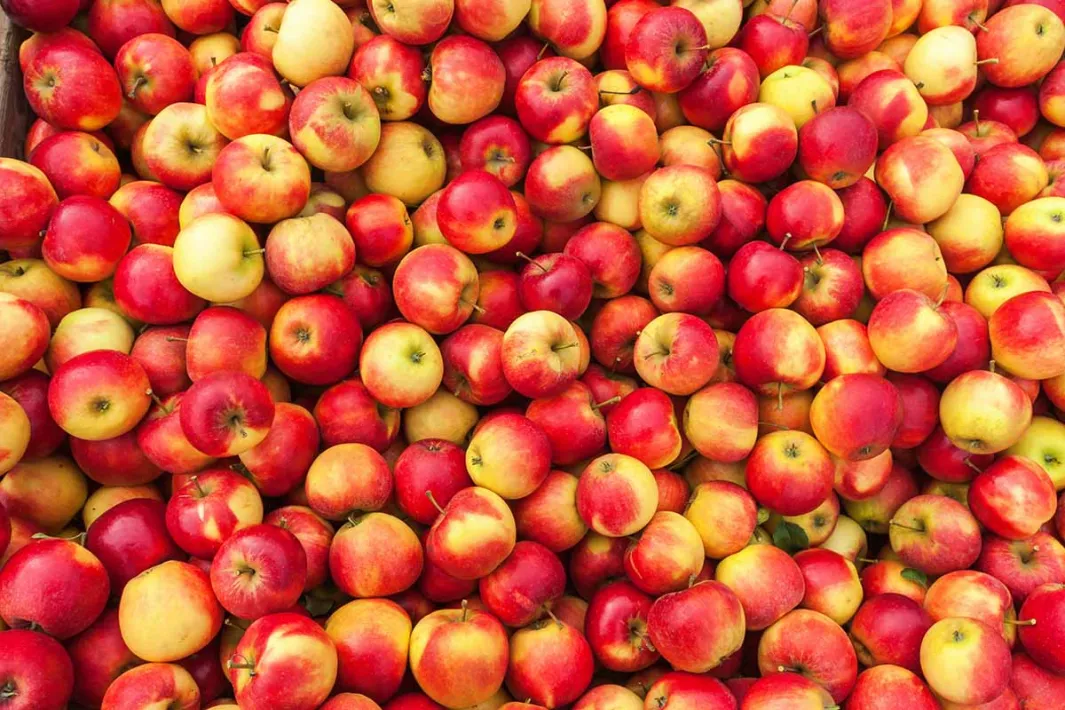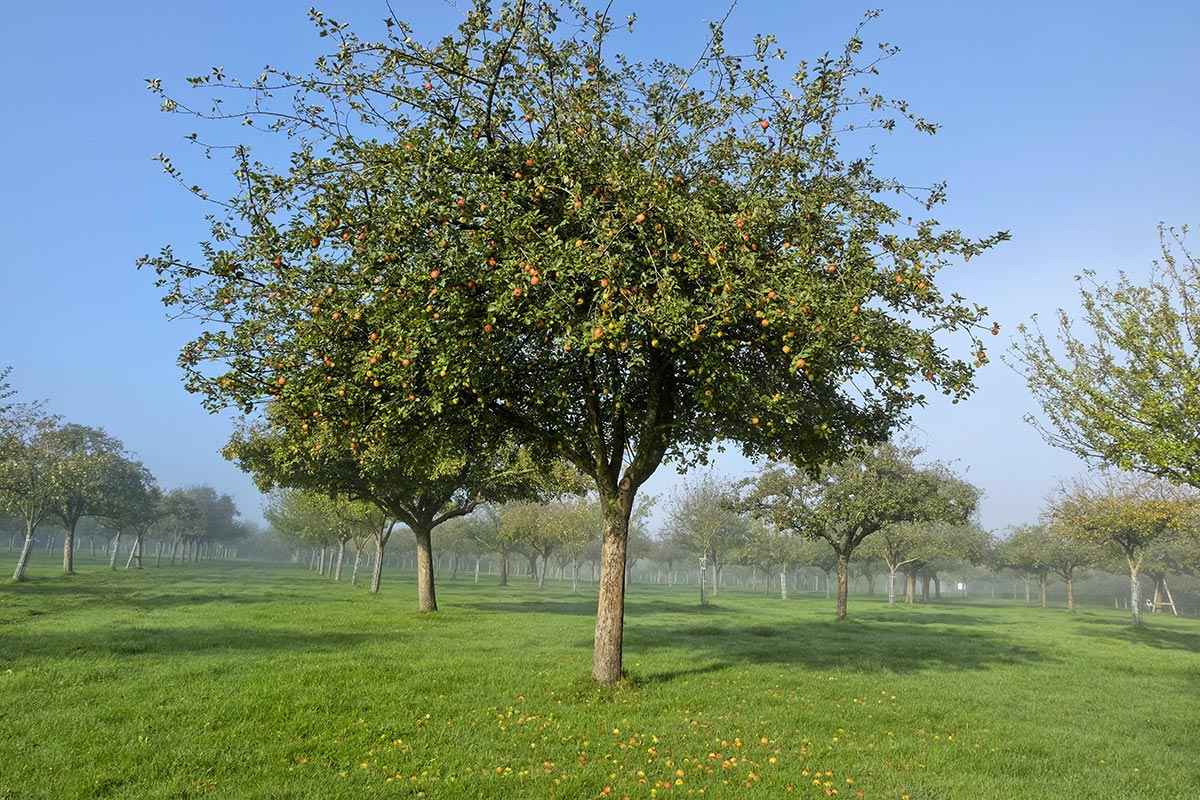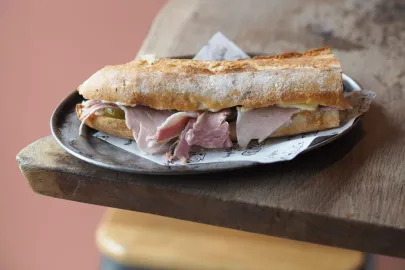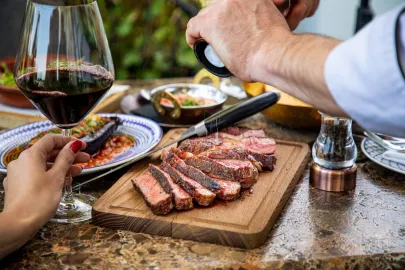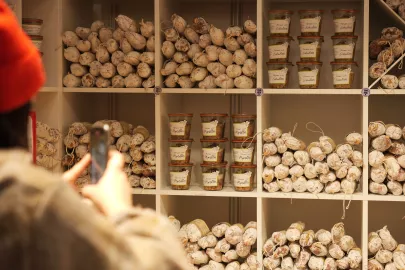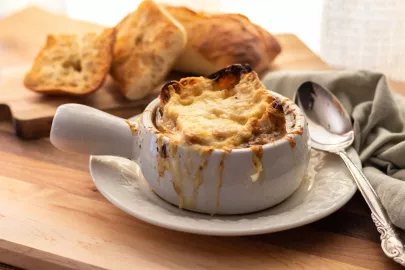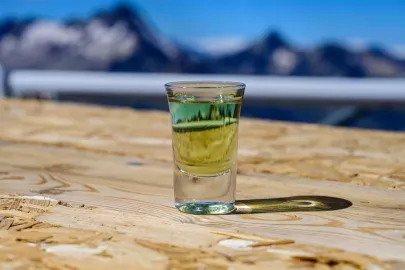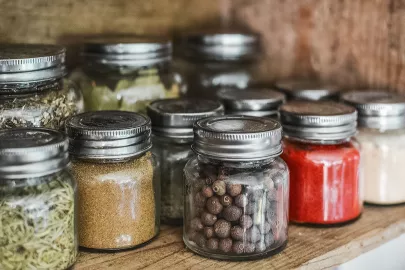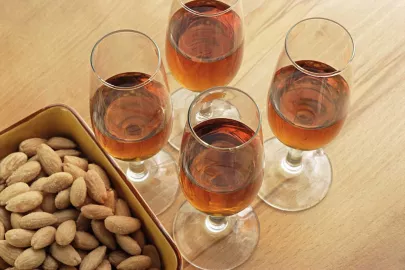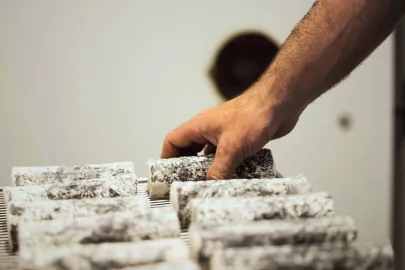Time-honored brews
Of course, cider can refer only to a fizzy drink in a white bowl with a red rim, served to wash down a sugar pancake in a tavern in Brittany or elsewhere… Well, OK, that particular cliché may be starting to acquire a sepia tint. In recent years, cider – like its pear-based cousin, perry – has seen a spectacular turnaround in its fortunes. Yet there’s nothing new about this brew: For thousands of years, people have been producing apple-based drinks. Indeed, some time before our era, a wine produced from the same fruit – known as “sizra” – was extremely popular in northern Spain.
On a slightly more controversial note: Is cider originally from Brittany… or Normandy? Some historians are dismissive of such local disputes. They maintain that we have Basque sailors to thank for stocking up the holds of their ships with it as a protection against scurvy and introducing it to their Brittany and Normandy counterparts through encounters in shared fishing waters around Newfoundland, Saint-Pierre and Miquelon, etc.
A world in ferment
Another chapter in the history of cider and perry is being written today. Long held back by their image as traditional drinks, cider and perry have in recent years been elevated to an entirely new level. The signs are unmistakable: Extensive menus in an increasing number of restaurants (no fewer than 80 ciders at the Comptoir Breizh Café in Saint-Malo), and growing interest not only from wine merchants and sommeliers – who are serving ciders in their own special glasses and devising increasingly sophisticated pairings (with desserts, but also fish, white meat, cheese, etc.) – but also from a curious and increasingly well-informed public. But naturally, this small target audience needs to obtain the product from somewhere. And that, of course, means the producers, working behind the scenes to supply them. Using increasingly painstaking methods that have very little in common with conventional agriculture and are intended to protect both nature and the fruit, they take care to carefully maintain the orchards, avoid damaging the harvest when the time comes, and choose varieties that are in keeping with their terroir, then combine all these factors with inspiration… Nothing is left to chance.
Recognition
The result? Ciders and perries from pioneers such as Éric Bordelet from Mayenne have long been guests of honor at Michelin-starred tables. Following behind them is a mass of men and women – including many young new arrivals – who are raising the quality levels of their products to new heights of finesse, freshness and elegance, the polar opposite of the often rustic character of “old-fashioned” ciders and perries. The happy outcome of a combination of individual and collective dynamism, this development has also attracted the attention of the INAO (National Institute of Origin and Quality). In addition to “historic” appellations such as Cornouaille cider (1996), Pays d’Auge cider (1996) and Domfront perry (2002), the INAO has more recently awarded an AOP to Cotentin cider (2018), Perche cider (2020) and Pays de Caux cider (2022). And that’s just the beginning!
Taste France Magazine’s selection
Jérôme Forget, Domfront perry, “Champ du Poirier”
Down at the l’Yonnière farm in Normandy’s Orne département, Jérôme Forget is producing remarkable perries. This lively, well-rounded drink, produced from the Plant de Blanc variety – the star of the Domfront perry appellation – is particularly worth a taste.
Éric Bordelet, “Granit” perry
On the borders of the Mayenne and Orne départements, Éric Bordelet – a sommelier by training – was one of the first to demonstrate the huge potential of ciders and perries. “Granit” is one of the most accomplished and delicious examples, with a rare finesse and strong mineral character.
Jehan Lefèvre, Breton cider
Jehan Lefèvre has long been committed to an organic approach, producing ciders with a very direct character, starting with this dry cider, produced from a blend of 17 apple varieties. Pleasant, with length in the mouth and fine bubbles, it is underpinned by a slight bitterness that provides its character.
Domaine Bordatto, “Basa Jaun”
A stone's throw from Saint-Jean-Pied-de-Port, in the inland region of the Basque country, Pascale and Bixintxo Aphaule produce a large number of organic and biodynamic products within the apple wine and cider sphere. One of these is “Basa Jaun”; a perfect balance of sweetness and raciness.
Contributor

Editor

